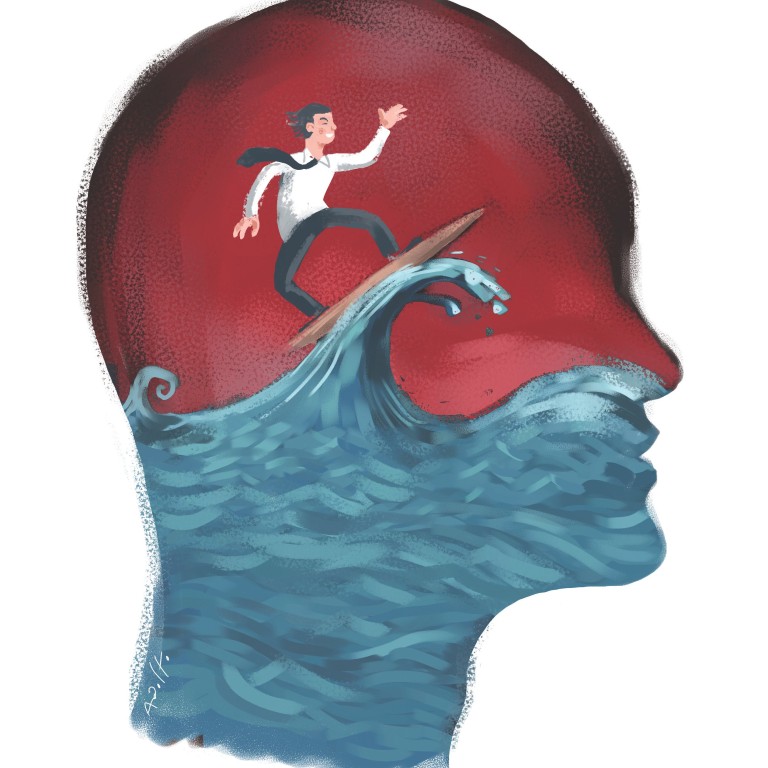
Personal Best: learn to go with the flow
We feel trapped in our daily lives, everything is an effort, we feel like we are going nowhere, time drags and we wish we were doing anything but what it is we are actually doing.
Many of us know what it is like to feel stuck. We feel trapped in our daily lives, everything is an effort, we feel like we are going nowhere, time drags and we wish we were doing anything but what it is we are actually doing. This, those in the know will tell us, is the polar opposite of being in a state of "flow".
Needless to say, anyone who is in a state of flow is having a different time of it. They are enthralled with their chosen activity, everything happens for them with ease, time flies by, and they live in a paradise-like world of their own. We may just dismiss these kinds of people out of hand as freaks of nature or as members of the privileged few, but experts say the state is available to all of us. We just need to know some of the rules in order to get there - and then, ideally, stay there.
"[Flow] is a state in which people are so involved in the activity, where the attention is invested in realistic goals and the skills match the requirement of the task," says Cindy Chan, clinical psychologist at CCPS in Central. She says there are some basic things we need to do to be in this state, which essentially include being challenged, rewarded, focused, in control and being present in the moment.

Chan cites a classic example of a "flow" experience as being one where a surgeon can spend up to 10 hours in surgery, fully immersed in his job and able to operate at full capacity without knowing any time has passed. "This is a flow experience," she says. Chan stresses that the activity must be intrinsically rewarding in itself, which is the reason why the surgeon can spend so long doing this one thing.
And that is the secret ingredient held by the person most likely to remain in a state of flow, Chan adds: the autotelic. "There is a kind of person with an autotelic personality, which includes curiosity, persistence, low self-centredness and performing activities for intrinsic reasons and this personality is more likely to have flow experiences," Chan explains.
For those who do not feel they fit into that category, there is an easy place to start in order to experience what flow feels like in the first place, says Michelle Tanmizi, a certified life coach and trainer who runs Zama International in Tung Chung. The key, she says, is to clear one's mind, focus on the task at hand and seize upon a meaning that makes it rewarding, whatever it is. Performing a task as distinctly unchallenging as the washing up can be, if nothing else, a flow training session, she says. "To get into a state of flow washing dishes is to change the meaning. So [you could see it as] a great time to talk to my mum, it's kind of therapeutic, I get to be in my own space and everyone leaves me alone."
For those who cannot find any meaning in what they are doing, she suggests re-evaluating the set of emotions that are causing the dissatisfaction. "This is about managing your state," she explains. She uses a technique with clients that takes them step by step through their different emotions and perceptions until they can see something positive in what they previously thought negative, hence creating a proverbial ladder to the state of flow at the top.
The key is to focus on the task at hand and seize upon a meaning that makes it rewarding
"It's about the questions I ask to finding something positive," she explains. "Your work, even if it is menial, it means you have the power to choose. It's about changing the meaning."
Perseverance is key, says Cedric Signori, communications specialist, coach, motivational speaker and managing director of Bright Step Consulting. This is also about finding a sense of peace and contentment in what we are doing and it won't come easily to everyone. "We cannot reprogram the mind in one go, so you have to train every day," he says. "It's like when you are doing meditation. Lots of people try and don't succeed at all and give up. Why? They have a lot of expectations."
The key thing to keep coming back to when we lose hope, he says, is to look at our core motivation and ask ourselves why we are doing what we are doing in the first place. "The first thing for people to do is understand and perceive what they want," he says. "What do you want to do? A lot of people don't know what they want to do."
But whatever it is, he says, what is vital is that it is achievable. "You have to be realistic," he says. "If you want to sing, you can sing in a bar but you don't have to be number one in the charts."
Chan concurs, adding that the key reason why the goal needs to be realistic is that it provides the necessary feeling of satisfaction that comes from achievement, which you need to keep you in the state of flow in the first place. "That's crucial," Chan says. "It's because if the goal is not realistic, or if there is no immediate feedback, then the person will feel frustrated and no satisfaction can be maintained. Feedback is very important as that is what gives the sense of satisfaction." Which is good news for anyone thinking they have to become a famous painter or brilliant surgeon to be in flow. You don't.
